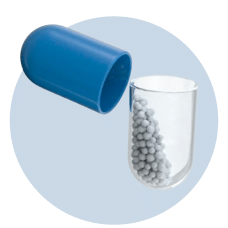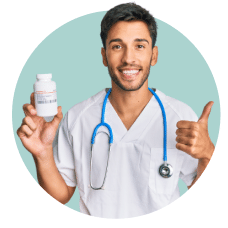- Sexual Wellness
- Condoms
- Lubricants & Massage Gels
- Personal body massagers
- Men Performance Enhancers
- Sexual Health Supplements
- Skin Care
- Mosquito Repellents
- Acne Care
- Bath Essentials
- Facewash
- Sanitizers & Handwash
- Sunscreen Products
- Baby Care
- Baby & Infant Food
- Baby Diapers, wipes & more
- Nursing & Feeding
- Baby Bath Essentials
- Baby Skin Care
- Baby Healthcare
- Baby Oral Health
- Hair Care
- Shampoo
- Hair Conditioners
- Hair Growth Supplements
- Hair Oils
- Hair Growth for Men
- Vitamins & Supplements
- Multivitamins
- Mineral Supplements
- Vitamins A-Z
- banner
- Nutritional Drinks
- Adult Daily Nutrition
- Kids Nutrition (2-15 Yrs)
- For Women
- Health Food & Drinks
- Green Tea & Herbal Tea
- Herbal Juice
- Apple Cider Vinegar
- Healthy Snacks
- Masks (N95, Surgical and more)
- Face Shield
- Surgical Masks
- N95 Masks
- N99 Masks
- BP Monitors
- Nebulizers & Vaporizers
- Oximeters & Pedometers
- Vital Signs Monitors & Wearables
- Oxygen Concentrators & Cans
- Weighing Scales
- Thermometers
- IR Thermometers
- Body Massager
- Diabetes Monitors
- Mobility Equipments
- Exercise Equipments
- Doctor's Corner
- Stethoscopes
- Tapes & Bandages
- Clinical Diagnostic Equipments
- Dressings & Wound Care
- Supports & Braces
- Neck & Shoulder Support
- Knee & Leg Support
- Back & Abdomen Support
- Ankle & Foot Support
- Hand & Wrist Braces
- Arm & Elbow Support
- Cervical Pillows
- Compression support & sleeves
- Heel support
Junimol RDS 170mg Suppository
Your child’s medicine at a glance
Junimol RDS 170mg Suppository is for rectal use only and should never be taken by mouth. Encourage your child to empty the bowel before inserting the medicine as that will enhance the absorption of the medicine. Also, ask your child to slow down and avoid moving around a lot at least for an hour after placing the medicine. The dose will depend upon your child’s age, body weight, and severity of the infection, so stick to the dose, duration, and way prescribed by your child’s doctor. If your child passes stool within 30 minutes of inserting Junimol RDS 170mg Suppository, you will have to insert it again.
Do not give your child Junimol RDS 170mg Suppository along with other medicines (many cold and flu medicines and other painkillers) that contain paracetamol, as this may result in overdosing and cause dangerous side effects such as hepatotoxicity (liver damage). Always check the ingredients of any other medicine before giving them to your child in combination with this medicine. Also, do not stop giving the medicine abruptly even if your child starts to feel better. Doing so may bring back the symptoms or worsen the condition.
Generally, this medicine is well-tolerated by the children. However, temporary side effects such as anal irritation, nausea, vomiting, and constipation may occur in some children. Consult your doctor in case these episodes become bothersome for your child.
This medicine is often considered safe and effective but may not be suitable for everybody. Inform your doctor if your child is undergoing treatment for any blood-related disorder, is allergic to any medicinal compound, or has any birth defects, liver impairment, or kidney dysfunction. This will help your child’s doctor evaluate the dose and suitability of this medicine in a better way.
Uses of Junimol RDS 170mg Suppository in children
Benefits of Junimol RDS 170mg Suppository for your child
In Pain relief
In Treatment of Fever
Side effects of Junimol RDS 170mg Suppository in children
Common side effects of Junimol
- Stomach pain
- Vomiting
- Anal irritation
- Nausea
- Constipation
How can I give Junimol RDS 170mg Suppository to my child?
How Junimol Suppository works
Safety advice
However, Junimol RDS 170mg Suppository contains paracetamol which is considered the safest painkiller for children with kidney disease.
However, the use of Junimol RDS 170mg Suppository is not recommended in children with severe liver disease and active liver disease.
What if I forget to give Junimol RDS 170mg Suppository to my child?
All substitutes
Quick tips
- Junimol RDS 170mg Suppository is for use in children who find it difficult to take paracetamol as tablets or syrup.
- This medicine is for rectal use only and should not be taken by mouth.
- Never give any other medicine formulation containing paracetamol along with this medicine as that may lead to serious side effects.
- Inform the doctor if your child has liver disease as the dose may need to be adjusted.
- If Junimol RDS 170mg Suppository does not seem to be helping your child, contact your doctor for advice. Do not give extra doses.
Fact Box
Patient concerns
FAQs
How should Junimol RDS 170mg Suppository be used?
How much Junimol RDS 170mg Suppository should I give to my child?
Can I give Junimol RDS 170mg Suppository to my child for low-grade fever?
My child’s fever is persistent even after taking Junimol RDS 170mg Suppository. What should I do?
Where should I store this medicine?
In what conditions should Junimol RDS 170mg Suppository be given with caution?
Disclaimer:
Tata 1mg's sole intention is to ensure that its consumers get information that is expert-reviewed, accurate and trustworthy. However, the information contained herein should NOT be used as a substitute for the advice of a qualified physician. The information provided here is for informational purposes only. This may not cover everything about particular health conditions, lab tests, medicines, all possible side effects, drug interactions, warnings, alerts, etc. Please consult your doctor and discuss all your queries related to any disease or medicine. We intend to support, not replace, the doctor-patient relationship.References
- Furst DE, Ulrich RW, Varkey-Altamirano C. Nonsteroidal Anti-Inflammatory Drugs, Disease Modifying Antirheumatic Drugs, Nonopioids Analgesics, & Drugs Used in Gout. In: Katzung BG, Masters SB, Trevor AJ, editors. Basic and Clinical Pharmacology. 11th ed. New Delhi, India: Tata McGraw Hill Education Private Limited; 2009. pp. 635-36.
- Grosser T, Smyth E, FitzGerald GA. Anti-Inflammatory, Antipyretic, and Analgesic Agents; Pharmacotherapy of Gout. In: Brunton LL, Chabner BA, Knollmann BC, editors. Goodman & Gilman’s: The Pharmacological Basis of Therapeutics. 12th ed. New York, New York: McGraw-Hill Medical; 2011. pp. 982-84.
- Grosser T, Smyth E, FitzGerald G. Pharmacotherapy of Inflammation, Fever, Pain, and Gout. In: Brunton LL, Hilal-Dandan R, Knollmann BC (Editors). Goodman & Gilman's: The Pharmacological Basis of Therapeutics. 13th ed. New York, New York: McGraw-Hill Medical; 2018.
Marketer details
The list of available options shown with the same composition has been prepared upon the advice of registered medical practitioners, pharmacists affiliated with TATA 1MG. TATA 1MG does not promote any pharmaceutical product of any particular company, and all recommendations are based on the medical opinion, advisories from specialist medical and pharmaceutical professionals.
Lab tests offered by us












